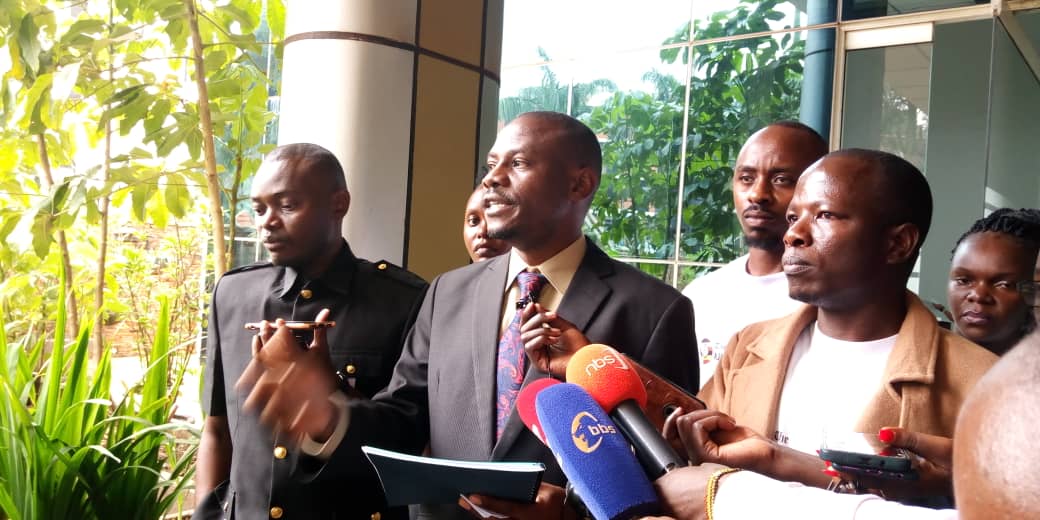A section of Human Rights Activists and members of the public have petitioned the Constitutional Court to overturn the Computer Misuse Amendment Law 2022.
According to the petitioners, the law that was assented to by the president last week is an infringement on fundamental rights and freedom of expression, is a duplicate of already existing laws and denies the public access to information.
They have sued the Attorney General Kiryowa Kiwanuka through their lawyers Peter Arinaitwe and Company Advocates.
Arinaitwe says the phrase “unsolicited information” as used in the amended Act is unclear and very broad without explaining what unsolicited would mean.
The petitioners marched to the Constitutional Court on Monday morning with placards reading “this law is worth breaking, “this law is unconstitutional among others .
Among them include ; Arnold Anthony Mukose, Norman Tumuhimbise, Farida Bikobere , Jeremiah Mukiibi, Kato Tumusiime, Lillian Luwedde ,Rogers Tulyahabwe, Teangel Teddy Nabukeera, Nixon Segawa together with their employer Alternative Digitalk Limited, an Online Television, Activist Angella Namirembe and lawyers Simon Peter Esomu and Anthony Odur.
On September 8th, 2022 Parliament of Uganda passed the Computer Misuse (Amendment Act), 2022 which was signed into law by the President on October 13th, 2022.
The Bill was tabled as a Private Member law by the Kampala Central Member of Parliament Muhammad Nsereko,
The law prohibits one to write, send or share hateful, unsolicited, misleading, or malicious information online.
The law also criminalizes the use of photos on social media without the express permission of the owners.
It further criminalizes recording another person’s voice or video without their consent and unauthorized access to personal information.
Further, it prohibits sharing information which is likely to degrade or ridicule another person, group of persons, tribe, religion, ethnicity, or gender, and children without the consent of their parents or guardians.
It poses jail time ranging from five to 10 years or 10 million shillings fine or both for people found in breach




